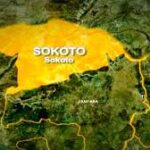The Federal Government has cautioned against the consumption of hides and skin, warning that it deprives the country of valuable jobs and economic benefits.
Speaking at the ministerial briefing organized by the Ministry of Information and National Orientation on Friday, Minister of Livestock Development, Mukhtar Maiha, stated that hides and skin has an estimated market value of N23 billion and could generate 700,000 jobs if properly harnessed for industrial use.
Beyond economic losses, Maiha also raised health concerns, noting that the traditional processing methods used in Nigeria could make animal skin consumption cancerous.
Providing insights into the Nigeria Livestock Growth Acceleration Strategy (2025-2030), Maiha revealed that the government aims to expand the livestock sector’s GDP contribution from $32 billion to $74 billion by 2035.
This, he said, would position Nigeria as a major player in both domestic and international markets for animal protein, competing with global leaders like Brazil, Argentina, and the United States.
To achieve this, the ministry has outlined seven strategic pillars to drive modernization and growth in the livestock sector:
Livestock Value Chain Development; the government plans to strengthen every stage of the livestock value chain – from breeding to market access – by promoting natural births, purchasing live animals, and introducing advanced reproduction techniques such as embryo transfers, genetic upgrades, and the use of exotic bulls to enhance productivity.
Animal Health & Zoonotic Disease Control; Maiha emphasized the importance of disease surveillance, vaccination programs, and biosecurity measures to curb zoonotic disease outbreaks and ensure a healthier national herd that meets both local and international safety standards.
Feed and Fodder Expansion; To increase livestock weight and productivity, the government will focus on providing affordable, high-quality feed options, which could boost meat, dairy, and poultry yields by 15% to 50% while reducing production costs for farmers.
Water Resources Management; Recognising the role of water in livestock farming, the government plans to rehabilitate grazing reserves, construct boreholes, and implement efficient water harvesting systems to address seasonal shortages and improve climate resilience.
Finance and Insurance for Livestock Farmers; The livestock ministry is working on credit access, insurance policies, and investment-friendly regulations to protect farmers from market volatility, climate risks, and disease outbreaks, ensuring financial stability in the sector.
Infrastructure Development & Waste Management; The government intends to upgrade slaughterhouses, meat processing plants, and cold-chain logistics to improve hygiene and efficiency. Additionally, it will introduce waste-to-energy solutions to ensure environmental sustainability.
Peace-building, Security & Social Cohesion; To address the long-standing farmer-herder conflicts, the strategy includes conflict resolution mechanisms, the development of grazing reserves, and resettlement programs to promote peaceful co-existence.
Building a Globally Recognized ‘Bred in Nigeria’ Brand; Maiha emphasized that the strategic plan, currently in its final stages, will serve as a blueprint for policy implementation, investment attraction, and efficient sectoral coordination.
The government’s competitive edge, he stated, will be built on quality assurance – anchored on healthier herds, improved management practices, better processing techniques, and premium packaging.
“The goal is to establish a globally recognized ‘Bred in Nigeria’ brand, ensuring that Nigerian livestock products meet international standards,” he said.
The minister lamented that despite the huge potential of the livestock sector, past administrations had largely ignored its development. However, he assured that President Bola Tinubu is fully committed to modernizing the sector.
As part of this modernization drive, the government has completed the digitization of all cattle routes nationwide and will establish fully equipped grazing reserves with the necessary infrastructure to support livestock farmers.
Additionally, efforts are underway to implement traceability measures, ensuring that every imported animal has an ear tag to minimize losses and enhance livestock management.






